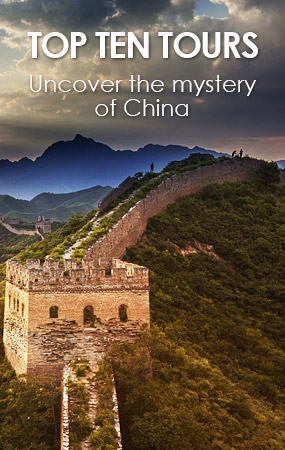Hall of Mental Cultivation
Yangxindian, the Hall of Mental Cultivation, is of significance in the Forbidden City. It was built in the Ming dynasty and rebuilt in the Qing dynasty. From Emperor Yongzheng, the Qing emperors lived and practiced their rule here. Three emperors had died here.
The hall has a front hall and a rear hall which was the emperor's bedroom. In the center of the front hall, emperors summoned their ministers to consult state affairs. On the bookshelf behind the throne, there used to be books prepared for a new emperor to show him how to reign. In the East Warmth Chamber, the notorious Empress Dowager Cixi, attended to state affairs behind curtain. The chamber is now displayed same as her time. She ruled China behind a yellow curtain for 48 years here under her policy of quislism. In the West Warmth Chamber, emperors from Yongzheng to Xianfeng interviewed their ministers to consult or give secret orders. The small house in the west end is named Sanxitang (Hall of Three Rare Treasures), since Emperor Qianlong collected and held three outstanding calligraphy masterpieces by Wang Xizhi, Wang Xianzhi, and Wang Xun, three masters in Chinese calligraphy. There still hang plaques written by Emperor Qianlong.
The lobby extending between the center of the front hall and the rear hall connects them. There are five imperial bedrooms, one in the center and the other four flanking it. The courtyards east and west of the rear hall, are temporary lodgings of empresses and concubines respectively when they were granted interview and bed time with Emperors. They were forbidden to come here without emperors' permission.
On February12th, 1912, under the heavy blow of the Revolution of 1911 led by Dr. Sun Yat-Sen, Emperor Dowager Longyu presided over the final cabinet meeting of the Qing dynasty, and was forced to decide abdication and sign the imperial abdication declaration here. However, the imperial family was privileged to stay in the Inner Court until 1924 when they were driven out by General Feng Yuxiang.
Go north to visit Xiliugong (Six Western Palace).

